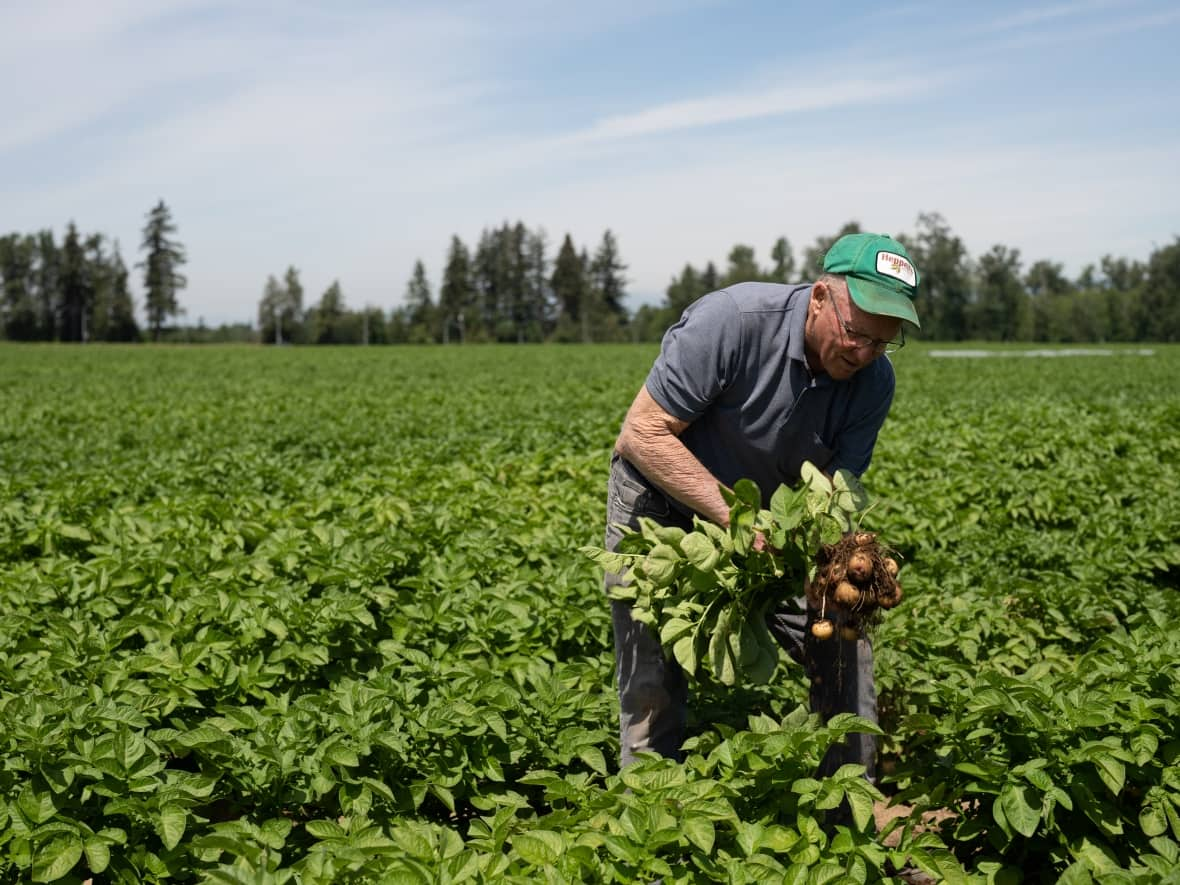Fertilizer shortages could pinch 2023 food supply, says Ontario Federation of Agriculture

Mark Reusser, vice-president of the Ontario Federation of Agriculture and the Waterloo Federation of Agriculture, fears there may be a food shortage next year if farmers can't get fertilizer.
Global tariffs have bumped up the price of fertilizer in Canada, making it harder for farmers to get their hands on it and affecting their ability to grow their crops and other food sources, said Reusser.
"If we can't access fertilizer, not only us here in Ontario and Canada, but around the world, we're in real trouble in terms of crop production and food production because we may not be able to produce enough," said Reusser, who raises turkeys on nearly 60 hectares.
"When people don't have food, governments become unstable, and that's not something you want to see."
Reusser said he can't predict the likelihood of a fertilizer shortage, but is concerned about supply chain issues resulting from the Russia-Ukraine war.
He also cited tariffs on Russian fertilizer that Canada put in place in March. The 35 per cent tariff also applies to Belarus and came into effect after Russia invaded Ukraine in February, subsequently hurting fertilizer supply.

Supermarket variety
Reusser believes this could impact the variety of products shoppers see on grocery store shelves.
"I suspect that if fertilizer is in limited supply, farmers will apply it to the crops where they get the best returns," he said. "Does that mean that they will choose not to grow some crops? I can't answer that question, but that's certainly a possibility. When any product is rationed, you need to make difficult choices.
"I can't predict the future," he added. "All I will say is that the supply of fertilizer right now is precarious, and we are very worried as farmers about the supply for the coming year, so that would be the crop year of 2023."
This coupled with the fact Ontario is losing over 120 hectares of farmland every single day doesn't help in maintaining a plentiful food supply, Reusser said.
Bryan Shantz from Rosendale Farms in Waterloo is also feeling the pinch, and not just because of fertilizer.
"The costs of growing a crop in 2022 have increased drastically from 2021," he said in an email. "Fuel, fertilizer, crop protection products, land and labour are all factors to the higher cost of production.
"The grain prices are currently very high due to production and supply issues in quite a few countries including Canada that experienced severe drought in 2021. The war in Ukraine has caused major interruptions for grain movement."
As for fertilizer, Reusser believes we need to rethink where we get supplies.
"I think this is a lesson for us, and the lesson is that we probably need to look at ways here in Canada of being more self-sufficient in terms of fertilizer production."


